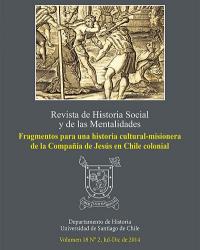THE EXPLORATION TO THE PATAGONIA OF FATHER NICOLÁS MASCARDI: AN EXPERIENCE ABOUT THE POSSIBILITIES AND THE LIMITS OF KNOWLEDGE IN THE XVII CENTURY
DOI:
https://doi.org/10.35588/g5vn2q33Keywords:
Missions, Jesuits, Patagonia, Imagination, Persuasion, EvangelismAbstract
In 1670 the Jesuit Nicolás Mascardi (Sarzana, 1624 – Río Deseado, 1674) directed the mission of Nahuel Huapi refoundation. Following his predecesor Diego de Rosales, Mascardi wanted establish an indigene reduction for puelches, poyas y tehuelches, for to be the starting point of “flying” missions until the Magallanes channel. From the find of the Mascardi letters to his master Athanasius Kircher, sent from the south of Chile –in this moment at the Archivo Histórico de la Compañía in Rome- this article pretend to analyze how converge the baroque imagination, the mentality and the scientific practises of the x VII century in the italian jesuit project; to try understand why his plan was precipitated down the historical events, which marked his missioner project destination and his early death at the hands of tehuelches, nearby Deseado river in Patagonia Argentina. The relationship of cultural conceptions, the strategies of geographic domain and the defense of symbolic worlds, are the yarn for the principal questions and thinking of this text. One of the hypotheses is that the mission of Mascardi in Patagonia is an example for understand what principles and contradictions exist in the civilization concept in American colonization process.













